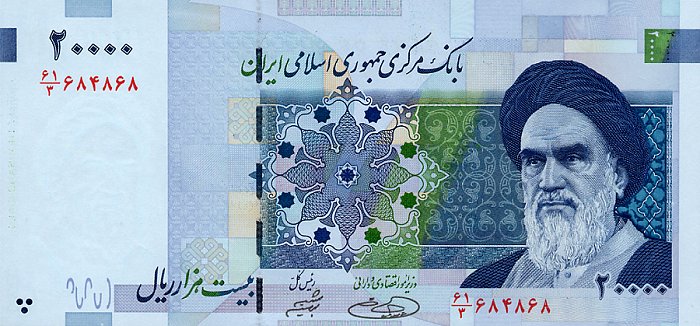January 16, 2011
- All
- Advocacy
- Annual Report
- Arseh Sevom 2017
- Attack on civil society
- Bani-Adam - Anti-Discrimination
- Bits of news
- Civil Society
- Civil Society Cookbook
- Civil Society Watch
- Contributors (Issue #1)
- Contributors (Issue #2)
- Dar Sahn
- Elections
- Environment
- Featured
- Featured Topics
- Free Speech
- Guardian Council Profiles
- Halal Internet
- HIV/AIDS
- House of Cinema
- In the news
- Infographic
- Jobs
- Jobs & Internships
- Magazine
- Networking Issue
- Newsletter
- Obstacles to Democracy
- Other Voices
- Other's Reports
- Post of the Week
- Press
- Publications
- Reports
- Research
- Resources
- Sanctions
- Simple Security
- single-page
- Statements
- Training
- What's Next?
- Woman, Life, Freedom
January 16, 2011
Writing in the Huffington Post, Hadi Ghaemi and Aaron Rhodes of the International Campaign for Human Rights in Iran write about the politicization of human rights and the equivocation of the international community when dealing with abuses of those rights. They discuss the conflation of those who advocate for more attention to the human rights situation in Iran with those who advocate for military action, arguing that the two are very different. The West, they argue, and many other countries as well, are squandering an opportunity to hold the government of Iran accountable for abuses. They write, "But with Iran, human rights are not bargained away, they are given away, since the international community gets nothing in return for its silence except scorn."
January 4, 2011
Hivos expresses concern about the conviction of two women held for six months simply for collecting signatures as part of the one-million signature campaign, a campaign to change Iran's discriminatory laws against women. This is the first time that the judiciary has convicted activists simply for collecting signatures. Shadi Sadr, a well known women's rights activist and the lawyer for the two women, Fatemeh Masjedi and Maryam Bidgoli said: "It is important for all of us to take action to stop the Judiciary of Qom to imprison women’s rights activists. If we let them to do as they wish, sentencing of the rest of women’s rights activist will become easier."Read more here.
December 30, 2010
The Financial Times reports that Grand Ayatollah Hossein Vahid Khorasani has told his students that the confessions of prisoners are not valid in courts of law. “Confessions of prisoners have no validity, and if a judge uses confessions for issuing verdicts that judge is no longer qualified,” he said. This stance is a direct challenge to both the Supreme Leader and the judiciary. In the past years, the judiciary has meted out harsh sentences and even execution orders for prisoners who have confessed under threat and torture.
December 26, 2010
The execution of Habibollah Latifi has been stayed. His sister reports that many demonstrators showed up to protest the execution, "Security forces have threatened the demonstrators [and told them] to disperse, but [this]was not accepted by the people until they were told about the suspension of the sentence by a Sanandaj prison official." The International Campaign for Human Rights in Iran reports on a meeting between Latifi's lawyers and the judiciary.
December 26, 2010
The Washington Post reports on the economic situation in Iran. Many complain of restrictions that prevent them from raising their own fees to address the effects of rising prices resulting from the end of subsidies.
"I never heard the government give money to the people. My dad and granddad also never saw such a thing," said the driver of a dilapidated orange Mack truck. "When they give away money like this, it means we are in trouble. The fuel price rises are only the beginning, I fear."
December 25, 2010
Masih Alinejad's interview with the sister of Iranian-Kurdish prisoner of conscience, Habibolah Latifi can be read over at EA WorldView. His sister reports, "My parents are elderly and I don’t dare give them the news regarding my brother’s execution, therefore they are still unaware of the news. I myself am not in a good situation either, but I have pursued his case until now, and will continue doing so."Habibolah Latifi is one of many Iranian-Kurds accused of capital crimes. Last May, four were executed, despite evidence that they were innocent. Amnesty International and United4Iran have letter-writing campaigns to protest the planned execution.
December 24, 2010
Urgent Request: Protest Upcoming Execution: In a continuing pattern of oppression of minorities, the judiciary is preparing to execute Habibollah Latifi, an Iranian-Kurd. He has always denied the trumped up charges agains him. A letter-writing campaign has been organized by United4Iran. You can participate by sending an e-letter.
December 23, 2010
...In a continuing pattern of restrictions on independent civil society, union truckers are told that they cannot raise prices for their customers or they will find themselves booted out of the union. The LA Times reports:
"We were told by written notification that if we stop transporting cement at the same price our union membership cards will be nullified," 56-year-old Bahman, who owns two cement trucks, told The Times. "That means that non-members of the truckers union can replace us and we lose our stable monthly income."


